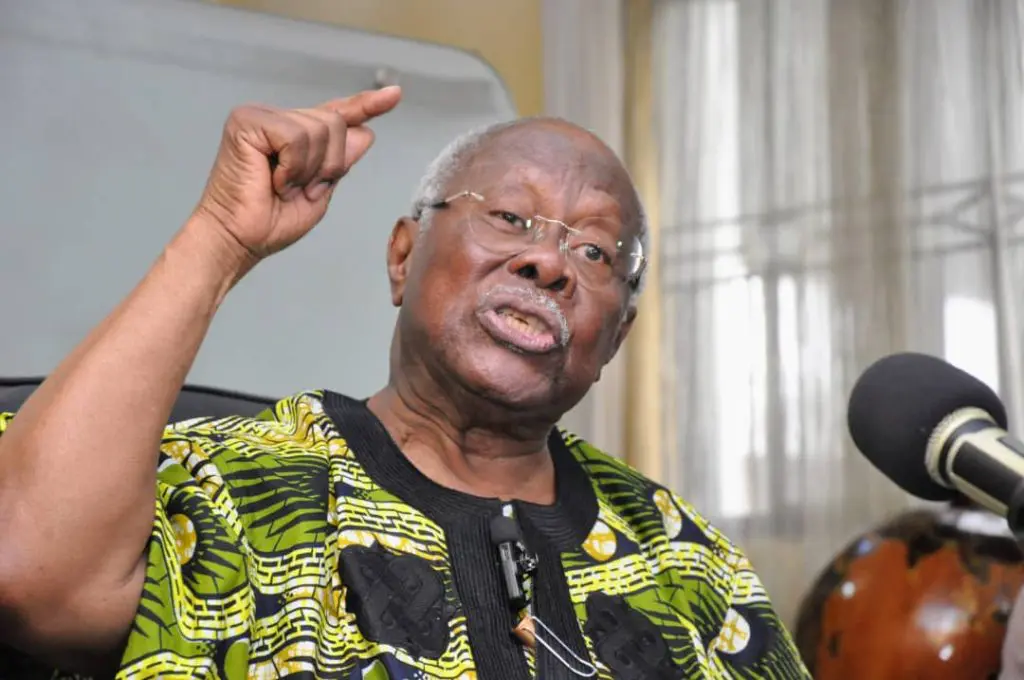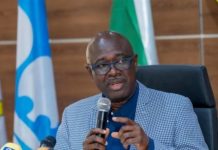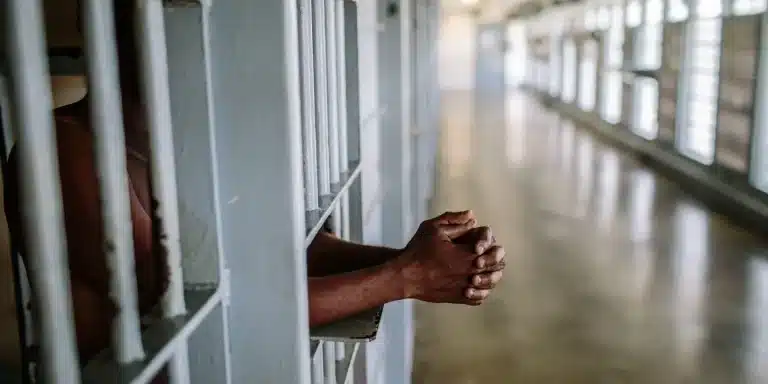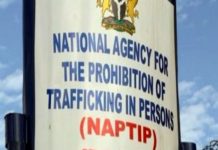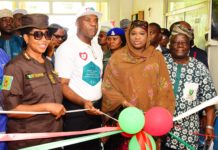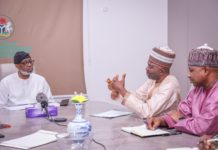By Okwe Obi
The responsibility of assuaging the economic plights of Nigerians is already cut out for the Minister of Humanitarian Affairs and Poverty Alleviation, Dr Betta Edu.
Numerically, the country has about 136 million poor people, and 16 million citizens who are wallowing in humanitarian crisis occasioned by flooding, fire disaster and the atrocities of insurgents.
Recall that former President Muhammadu Buhari had inundated citizens, international community and development partners of his administration’s willingness to lift 100 million Nigerians out of penury within a period of time. But that did not materialise, going by the wide scale pangs and despondency.
Now, President Bola Tinubu, who was sworn-in in May 29, has made the same commitment to stamp out poverty with the appointment of a former women’s leader of the All Progressives Congress (APC), to champion the cause.
Despite her boisterous disposition and assurances, Edu, according to some humanitarian pundits, would have to content with some existential challenges namely; like insecurity, nepotism, accountability and evenness in the distribution of palliatives, appointment of state coordinators and supervision of independent monitors, through the National Social Investment Programmes (NSIP).
Insecurity
It is on record that almost every region in the country is faced with one form of criminality or the other, but majorly in the North East, particularly Borno, Adamawa and Yobe States, accordingly.
The dispersal of basic items, even though some experts have contended that it would do little in cushioning poverty, will be a herculean task for the minister and her team, to access difficult areas occupied by bandits.
A scalding report by Aid Workers Database, disclosed that since 2016, 35 aid workers had been killed, 28 kidnapped and 22 injured.
Although, Edu had sought the assistance of the Chief of Air Staff, Air Vice Marshall Hassan Abubakar, when she paid him a courtesy call in Abuja, in the area of security back up to approach difficult terrains, some resource persons have said it would be a risky adventure.
She pleaded: “We are counting on you for support in terms of intelligence. We are counting on you for support in terms of security. We are counting on you for support within your mandate to see that our job is made easier, better and success is achieved.”
Abubakar gave the assurances of the Air Force to support the process by saying, “we will do better, we will give you all the support you need.”
Supervision of palliatives’ distribution
This will likely pose a challenge as some government officials in connivance with community leaders have penchant for hoarding food items. Remember that during the lockdown occasioned by COVID-19 pandemic, a large quantity of food items meant for poor rural dwellers were hoarded and stored in warehouses by some state government officials.
The outbreak of the #EndSARS protests saw the destruction of those warehouses and the items like mattresses, bags of rice, bail of wrappers, cartons of noodles, biscuits e.t.c, were catered away by hungry Nigerians. While some of the goods had expired, some were rotten beyond consumption, a situation that sparked wide condemnation. It is a task that she is expected to look into.
Accountability
More so, financial accountability in the distribution grants through the Market Moni and the Conditional cash Transfer (CCT) to traders and women’s farmers, will be another challenge that the former Commissioner for Health in Cross River State, will have to battle with to ensure that the deserving Nigerians get it.
Employment of incorruptible independent monitors

The employment of incorruptible independent monitors is another bottleneck the minister will deal with sequel to the large scale corruption and theft that greeted previous employment process. Nigerians are waiting with bated breath to see the process, as political associates and those in power would likely trump up their cronies to be favoured.
In all of these, the Executive Director of Resource Centre for Human Rights and Civic Education (CHRICED), Dr Ibrahim Zikirullahi, argued that beyond the distribution of palliatives, the Federal Government through the minister should look at instructional intervention to help citizens navigate the hassle of life.
Zikirullahi noted that government should up the ante in providing useful information on healthy living, dieting, averting flooding, fire outbreak and to have genuine development plan that is reflective of the will of Nigerians.
According to him, N774 billion should be set aside for each local government to drive development initiative. He explained that N1 billion each should be used to set factories and industries peculiar to the people which in turn, is expected create at least 1000 jobs per local government.
He said: “First of all, I will say it is not difficult to move Nigerians out of poverty if we have leaders who are willing. This is because the late MKO Abiola defined poverty as an elephant everyone can see, touch and feel.
“We all know the implications of poverty and it is more or less like hunger. Poverty entails that one cannot access the basic necessities of life.
“What we are seeing in these days is tht Nigerians have been pushed to tokenism whereby the government entrench mass poverty an then beginning to dole out palliatives in their own terms.
“In a serious country, you must have a road map. What is the country’s plans for education? Why is the plan for economic development, employment and social services? And that is why any country that is committed to the welfare of the people always have why is called national plan.
“It is not a manifesto. This government will come and do whatever it likes. Another will come and continue with it.
“If we do not engage the people in the national plan but allow big men cook up whatever they like and call it plan, they will be a problem. So, those that are directly involved need to be engaged.
“Government needs to understand the level of poverty through them so that by the time they come up with a policy or plan, the people will have a buy in and implementation will be easy.
“You cannot be providing jobs and at the same you are talking about poverty alleviation. We have situations today in which students know when they are enrolled into universities. But they do not know when they graduate.
“What needs to be done is the establishment of industries and social services.
“When I was a member of the transition monitoring group, we wrote to the vice president who was the chairman of the National Recovery and Growth Plan (NRGP) that they should set aside N774 billion which is not up to N1 trillion for community development.
“We said N1 billion should be pushed to each local government and establish something peculiar to that local government for development. It is poultry farming that a particular local government is good at, invest N1 billion there.
“If it is groundnut plantation that is good in another local government, invest it there. By the time we do tht people will see what we are doing directly an they will be employed in their community.
“Youths do not need to graduate and carry their certificates to different states in search of jobs.
“The next year repeat the same thing and you will see massive development. I am sure that a fish farming that cost N1 billion will give employment of at least 1000 people.
“At the end of the day, Nigeria will become an industrialised nation. People will be employed. They will pay tax directly. The congestion in cities will reduce and petty crimes will be reduced to the barest minimum.”
Amid the looming obstacles, the minister has reiterated her determination to brace up to the hiccups.
In her recent visit to the Borno State Governor Babagana Zulum, she said: “The Ministry under me will not only aim at eliminating poverty, but it shall also provide safety nets to prevent Nigerians from going under the poverty line.”
She added: “The Ministry shall establish humanitarian hubs in all local government areas as a deliberate policy of targeting the grassroots, the rural poor that are more in large numbers in communities and villages.
“The Ministry shall deliberately create job opportunities for youth on a short- and long-term basis, giving micro-credits, vocational training among others.”




